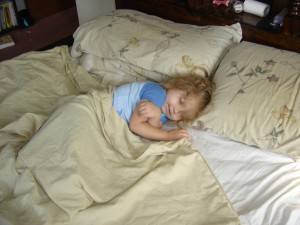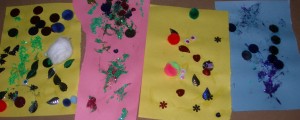When my foster brothers–who suffered with attachment disorder– were in some of the worst periods of their sickness, a therapist suggested that we travel. It throws children in to one of their most dependent states. They don’t know anyone else, they don’t know where they are, they are not surrounded by the familiar items of their home. Often even their food and sleeping patterns change and flex according to the travel schedule. This, the therapist said, would make it an ideal situation for bonding, because you (as the parent) were the only constant, stable thing in their life.
I am about to go on a road trip with my (almost) 17 month old son. And not a small or short road trip either, we are going to Texas. We are driving from northern MN to Texas and then we will be spending 10 days there, not in the same place– we have to do some traveling in Texas as well– and then road tripping back. His schedule will be thrown off, his food will be different, he will have to spend hours confined to his car seat, he will have to visit people he doesn’t know (very well) and will have to wear disposable diapers. These are all very unsettling things in a small child’s life. I have found myself becoming increasingly nervous. Until I remembered what the therapist had said. Now my son, by no means, has an attachment disorder but I thought about what she had said and applied it to our upcoming situation and it has begun to turn my feelings of trepidation in to ones of excitement.
We are going to have a blast! We are going to get out of normal routine. We are going to spend all kinds of time together doing new and different things. We are going to experience things together in a whole new way. The “old” places to me are not going to feel “old” or routine this time because I am going to experience them through the eyes and emotions of my child. What an invigorating experience!
Through this trip we are going to continue to forge our attachment and on the other side of the thousand miles of road we will travel we are going to come out, still and again, a very bonded pair.
That being said, anyone want to leave some tips on how to keep this busy little man occupied and happy (as possible) during this long trip? (i.e. snack, games, toys, etc.)


 I mentioned the possibility of baking something at some point in the day. “Let’s bake something now” was Cavanaugh’s response, followed up by pushing his
I mentioned the possibility of baking something at some point in the day. “Let’s bake something now” was Cavanaugh’s response, followed up by pushing his 
